I hadn’t seen the movie Jacob’s Ladder (1990) until recently. Someone said I would like it. It’s one of the best depictions of Hell in any movie that I’ve seen—and also one of the best representations of New York City. The genius of the movie is realizing that those two things are the same. But there’s a certain charm that the main character, Jacob (Tim Robbins), finds even in this Hell—and those are the most interesting moments, I think. It’s easy to imagine Hell as just cartoonish constant torture, being scalded, gouged, at maximum pain, every second. But the real truth of Hell is that, if you spend eternity there, it will have to be something that you become accustomed to. That’s the real torture of Hell—is how the torture stops being seen as torture. When you become comfortable in Hell, well-adjusted to it, that’s the most terrifying existence you can have. This is what Jacob’s Ladder does so well—it merges Jacob’s fairly normal life, as a New York City postman living with a hypersexual ethnic brunette girlfriend, into a vision of actual, literal Hell (complete with demons). The 80s/90s had a fixation on Hell; lots of movies were made about it. Some were better than others. Some were farcical (Little Nicky), some were kind of semi-serious (Devil’s Advocate), some were literal (Hellraiser), some were genre mashups (Event Horizon). That’s only a couple off the top of my head. I’m sure there are lots more I’m not thinking of. But Jacob’s Ladder is the best by a mile, because it’s the most believable depiction of Hell—it takes Hell more seriously than the others.
Jacob finds moments of lightness and enjoyment even in Hell. Driving in his mail truck, he sings along to a song.
At work one of his coworkers jokes that he’s just coming into the office to pick up his paycheck and leave, and calls him a greedy motherfucker, and he laughs and kind of snickers. There are a few other moments where Jacob laughs, but it’s always the same kind of slightly malicious snicker. A fitting laugh for Hell.
But his main form of enjoyment in hell is with his girlfriend he lives with, a hot Latina woman, named Jezzie, short for Jezebel. They spend a lot of time in bed together, and he’s consumed with lust for her. Without that he probably wouldn’t be able to manage living in Hell. I think that’s an interesting point, that lust is what allows us to continue existing in horrible conditions.
But Jacob lives in Hell, and he’s surrounded by demons. Eventually, he even starts to see them, chasing him down in cars.
But this is poses a question: does living in Hell turn you into a demon? Are you a demon when you find some kind of contentment or ease within Hell? We of course live in a hellish world—if we enjoy it, does that make us a demon? It’s no surprise that the rulers of society push sinful things on us to try to get us to enjoy ourselves in this hellish world they’ve created.
There’s a whole lot else going on in this movie too. Jacob was in Vietnam, and was subjected to experimental drugs. It’s kind of a critique of the MK Ultra program, but that’s almost too much to process. Hell is enough to think about.
Jacob suspects he’s in Hell, but he isn’t quite sure. And again that’s another terrifying thing about it—we always assume that we would fully know if we were in Hell. There’d be some demon with a pitchfork, jabbing it into you all the time while fires burn you and whatever. But this Hell is more subtle, and you aren’t quite sure it’s Hell—it might just be the regular world, your normal life, and that’s the most terrifying way to think about Hell.
Things come to a head when he goes to a house party with his girlfriend. He starts to see flickers of demonism all around him, but he tries to block it out, and just have a good time like everyone else. But his girlfriend appears to be getting penetrated by some kind of demonic appendage—and that he can’t ignore, especially how much she appears to be enjoying it.
Eventually the demon penetrating her goes all the way, his demon tail comes out of her mouth.
Demon sex is intense. Too intense for Jacob. He passes out, and then starts a downward spiral. But that downward spiral is actually good because he’s becoming less accustomed to Hell. Hell becomes strange and uncomfortable for him. As it should be.
As he becomes more convinced that he’s in Hell, and being chased by demons, Jezzie tries to convince him that he’s being silly, that he’s just seeing winos and bag ladies in the streets, and that it’s nothing to freak out about. As he withdraws and becomes more hesitant to venture outside, she turns cold and nasty. These are some of the more uncomfortable scenes, because you can see how cruel she is, how little she cares that he is convinced he’s in Hell. Demons don’t want you to realize that they’re torturing you, because if you realize it, then they get less powerful. So there’s a power struggle here, where Jezzie, as the representative of the demons, tries to keep power over Jacob. Even beautiful Jezzie starts to show her demonic essence.
So Jacob‘s quest to figure out what’s going on continues. He tries to get help from his war buddies, but they all turn their backs on him. They are resigned to Hell. They feel like if they just go along and ignore the demons and the hellishness, then it will be okay.
Eventually, he goes to a kind of sadistic medical hospital, where you see the full power of Hell’s evilness as you might typically imagine it—body parts strewn everywhere, and all kinds of freakish cruelty and suffering.
But this is actually a sign that the power of Hell is decreasing, because if Hell has to try that hard to scare you, it’s losing its power over you. When Jacob was most fully controlled by Hell, he was just going to work and going home to his girlfriend and not really questioning the weird things he saw, or listening to his intuition.
Eventually, Jacob does escape Hell. But escaping Hell means one thing: you get to die. For Jacob this means realizing that he already is dead—he died in Vietnam years earlier, and he went directly to hell. He had enough of an awareness that something was wrong, and he escaped Hell, into death. The demonism he experiences in the movie is Hell’s craftiness in trying to get him to deny that he’s in Hell, to deny that Hell is real, to deny the demons around him. But there was always something in him that made him realize where he was. And that’s the optimistic tone that even this incredibly dark movie ends on—that no matter how subtle the power of Hell gets, no matter how adept it is at integrating us into its environment, we will always be able to have some feeling of what’s going on. That’s Jacob’s ladder out of Hell. It leads to death, but a death that is peaceful, and that he accepts. A happy ending.


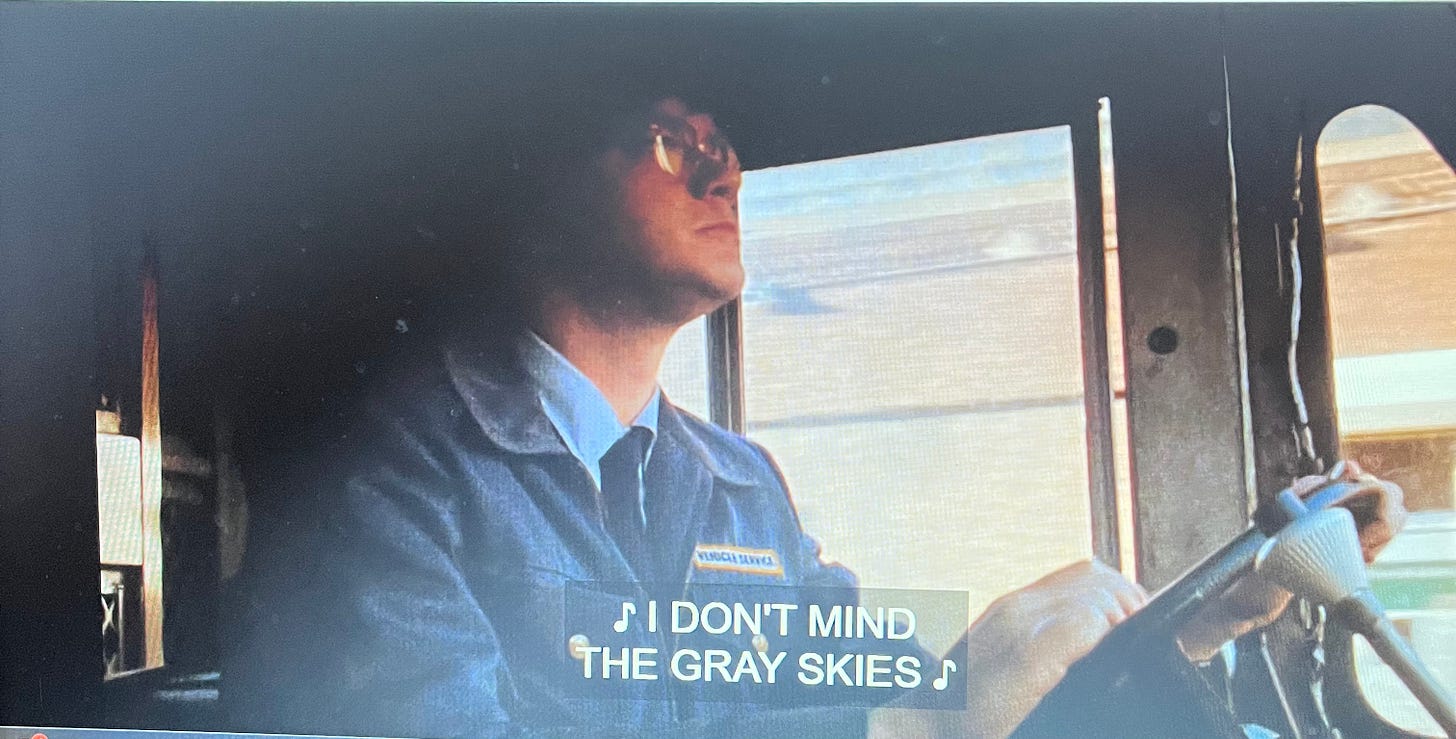
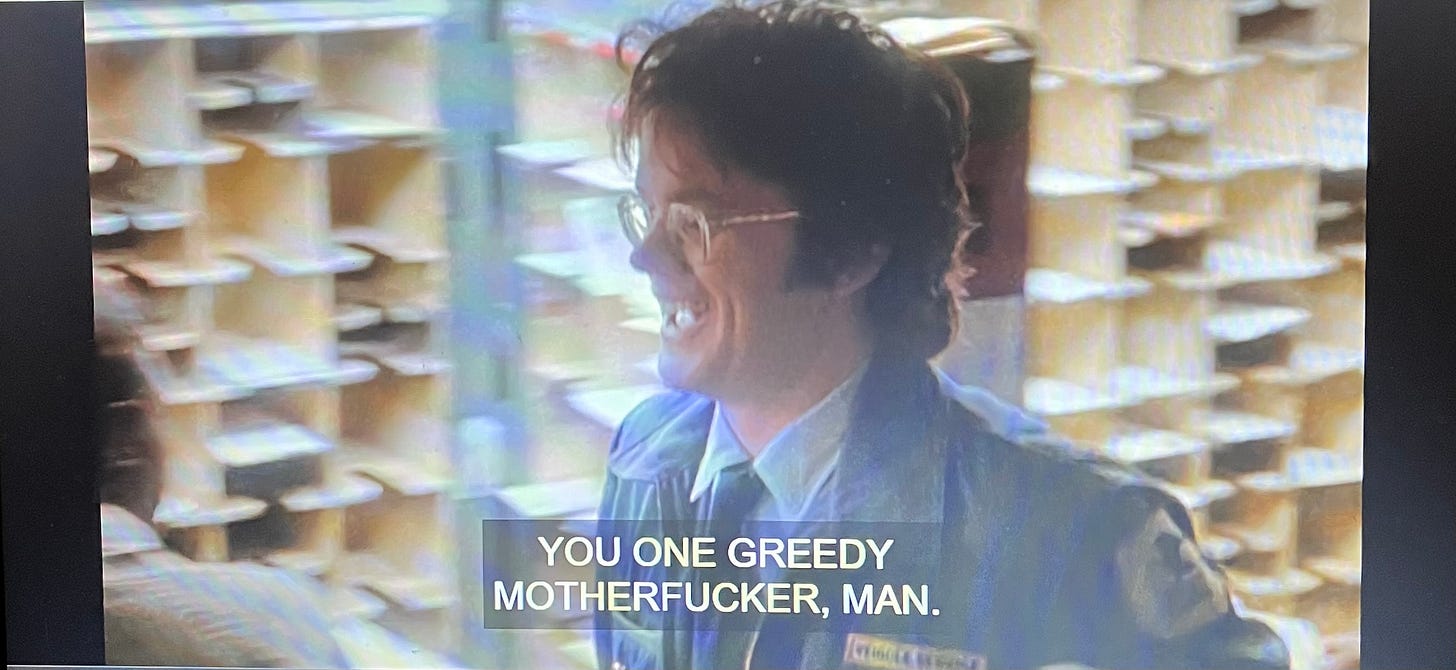

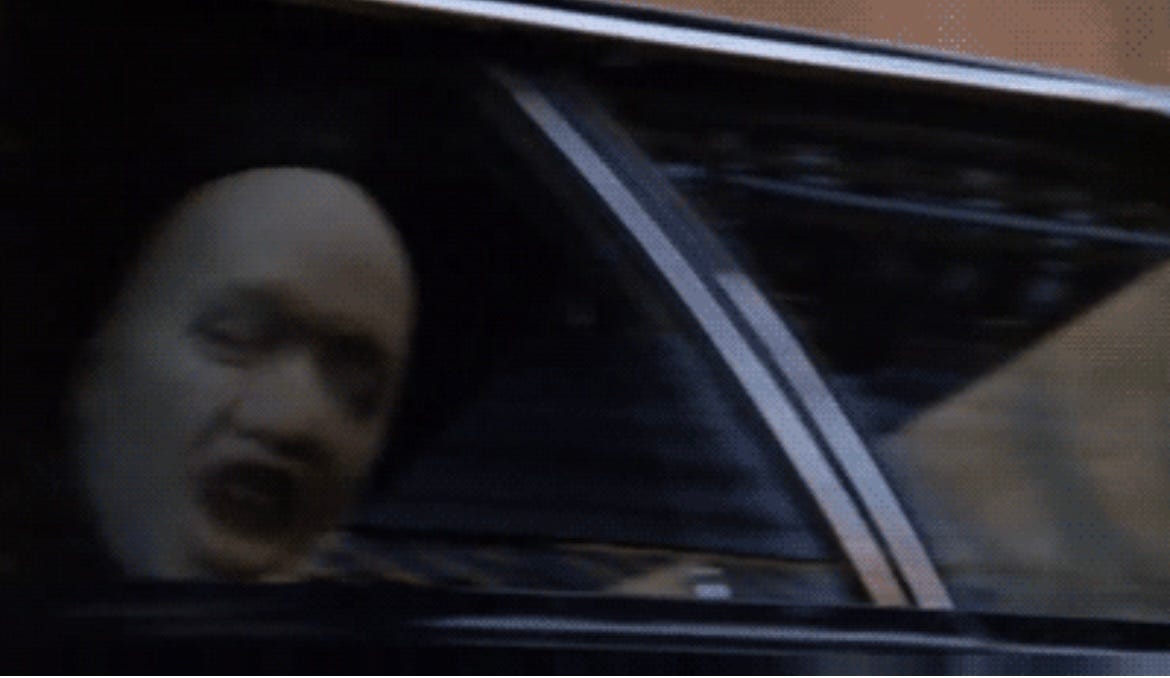
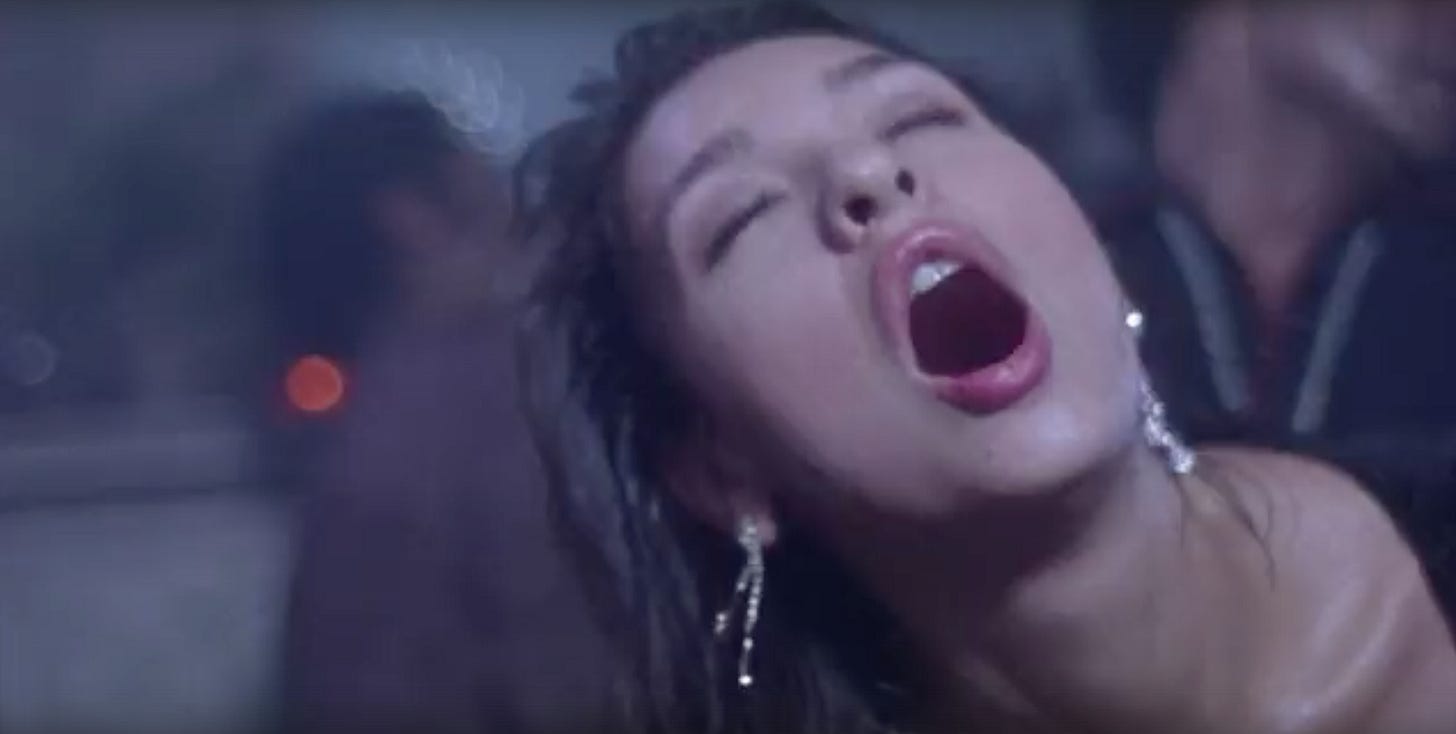
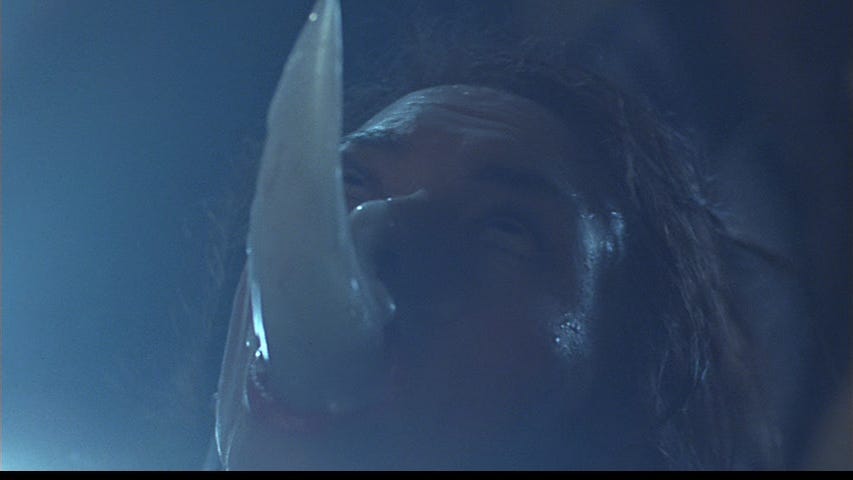
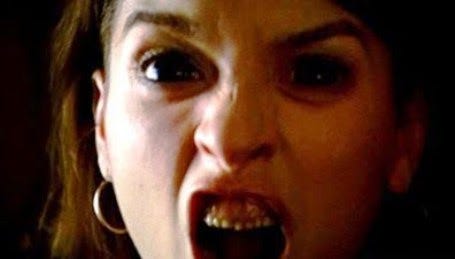
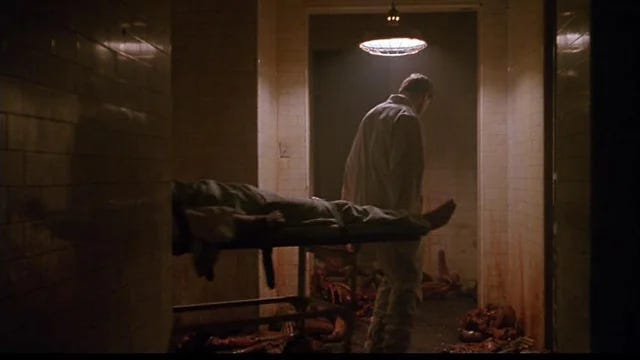
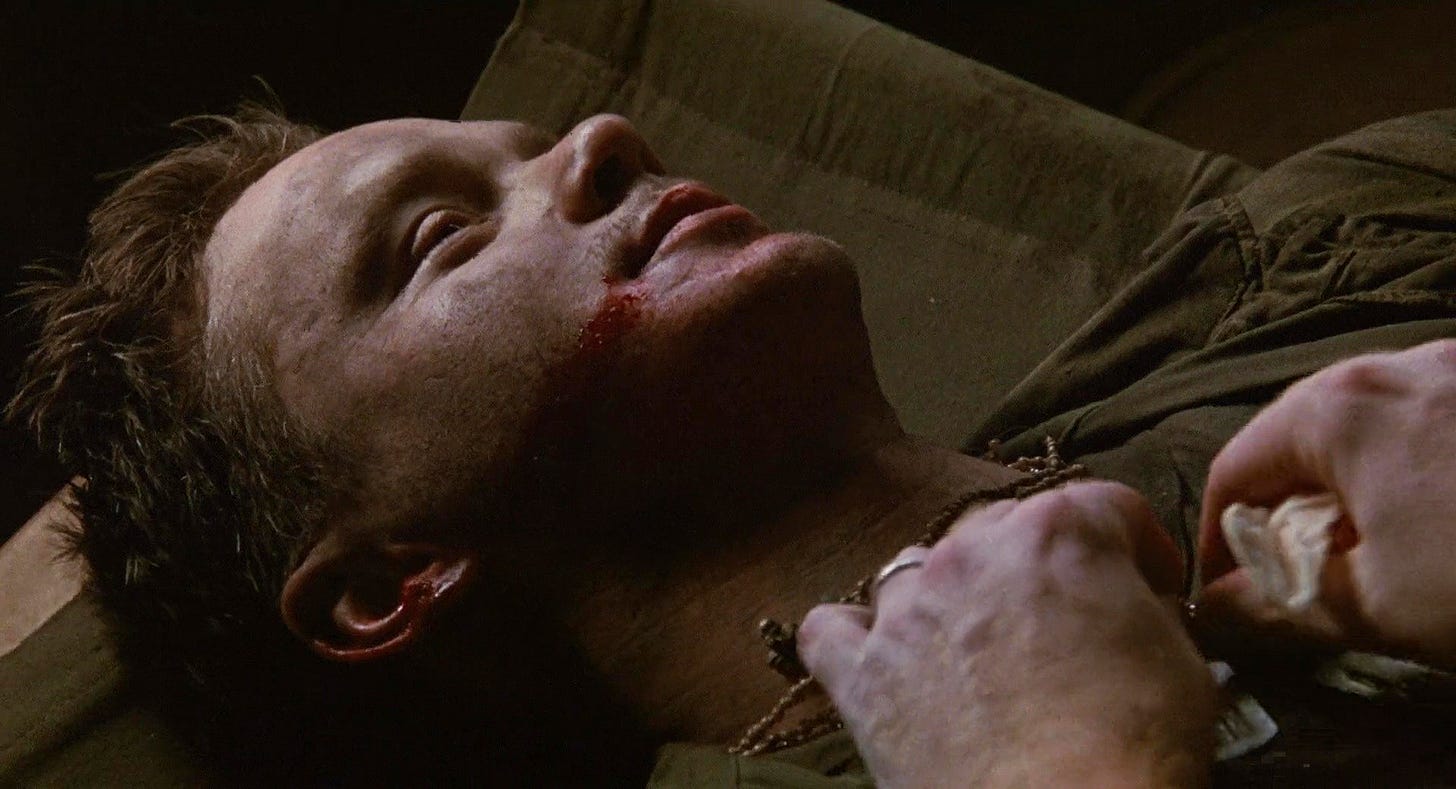
RIP Elizabeth Peña. She was great.
I need to rewatch this movie soon. I don't remember at all the demon phallus coming out of her mouth.
Probably a side effect of watching a TV edit back in the late '90s.